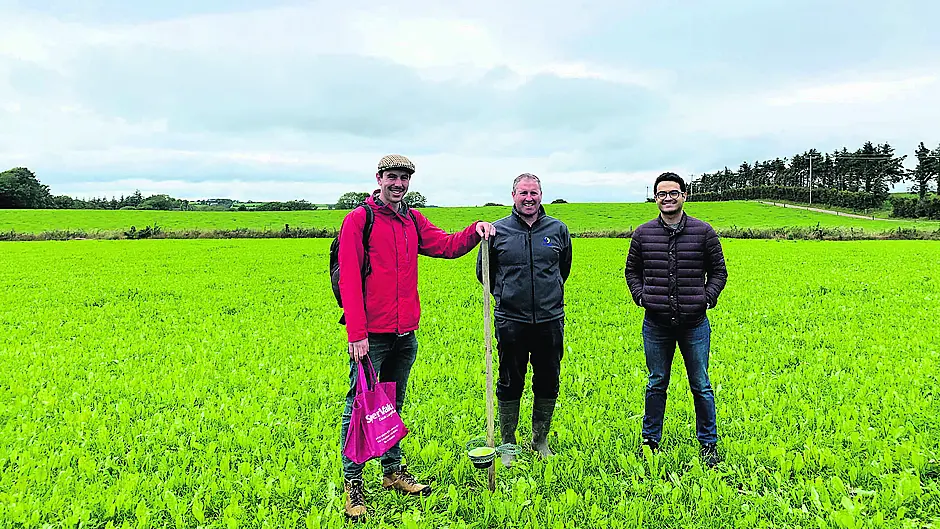WITH the future of agriculture firmly linked with the bio economy and the search for a zero emissions farming sector, West Cork’s Carbery Group is working to prove that the holy grail of a carbon-neutral dairy farm is not only possible but economically viable and beneficial as well.
Carbery’s director of sustainability, Enda Buckley, spoke to The Southern Star and outlined the challenge the company has undertaken as part of the Farm Zero C competition.
‘Science Foundation Ireland (SFI) Future Innovator prize of €5million is designed to support teams from various disciplines to find solutions and to work towards a nett zero emissions dairy farm,’ Enda said.
‘Nobody has tried this before; this project is a world first for agriculture and Carbery in partnership with Teagasc, BiOrbic and Prof Kevin O’Connor, Devenish Nutrition, TCD, UCD, Grassa, IT Tralee and Growers Edge has taken on the challenge here in West Cork.’
‘We want to prove to farmers that a nett zero emissions farm is possible and that they can buy into this future for their farming enterprise.’
Using Shinagh Farm’s 230 cow herd as the test bed, the Carbery team set about tackling the challenge by targeting soil and grassland; animal diet and breeding; biodiversity; lifecycle analysis and renewable energy as a direct response to the challenge.
‘Beginning with soil and soil carbon sequestration, Dr Dario Fornara, who is a global expert in this, has shown that well-managed farms, and typically dairy farms, are actually sequestering a lot more carbon than had been previously anticipated and so a lot of samples have been taken at Shinagh Farm to see how much carbon is present there,’ Enda said.
‘Then we have Dr Jane Stout and Cian White from TCD, who is spending two months at Shinagh, carrying out a very in-depth biodiversity mapping exercise, so from there we can see what we have and what we need to improve.’
Top priority
Renewable energy is also a top priority for Carbery and for Farm Zero C. ‘Shinagh already has a wind turbine and we will be looking at solar and many other renewable energy sources, but what we have to do here is to ensure all this technology cannot come at any cost, we need to look at a return on investment,’ Enda said.
‘We will also be looking at life cycle analysis (LCA), which is basically environmental accounting, inputs and outputs to determine our carbon footprint.’
The team at Shinagh has also planted a variety of grasses, multi-species swards (MSS), to search for reductions in methane emissions.
‘We planted MSS, so within the perennial rye grass we have red and white clover, plantain, chicory and other herbs, about six weeks ago and the cows have grazed these last week,’ Enda said .
‘This has been the first time this has been done with 230 cows and we’ve had some really good results.’
Not limited
The search for nett zero emission farm is a three- to five-year project but to be successful cannot be limited to just dairying farming according to Enda.
‘We have to be realistic, we have to ensure that there is a payback as well, this has got to be applicable, practical and economically efficient right across the farming sector,’ Enda said.
‘Carbery feels that there is a lot opportunity here and we are very keen to see what we can achieve in terms of a “value add” for our farmers, for the organisation and for our customers. This is future-proofing, as we see it, as well.
‘Our approach is very farmer-centric and, while this is an extremely exciting project, we are fortunate to have a great team of partners as well as our team at Shinagh Farm.’










